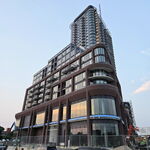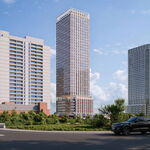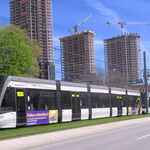What war on cars? I only know of one instance where car capacity was sacrificed for sustainable transport: Jarvis.
I agree 'the war on cars' is a bit dramatic (wars have generals), but in the last few years we've also seen:
- Harbour / Lake Shore dual left and right turns removed for pedestrian / cycling reasons
- bike lanes on Eastern Avenue
- St. Clair Streetcar right-of-way
- pedestrian scarmbles at Yonge / Dundas and Yonge / Bloor
- dedictaed bus lanes and signals on Allen Road
- cancellation of Front Street extension
- bike lanes on Annette (I think)
There's also a lot of projects in the works that will reduce road capacity in the City, such as the Gardinar ramps project, Queens Quay LRT, etc. that may or may not happen depending on who's elected.
If there was a 'war on cars', and our general was competent (Miller is not Napolean), they would basically adopt the 'road tolls for transit' strategy. I've been watching this City for a while and I'm postive that's the best way forward.




